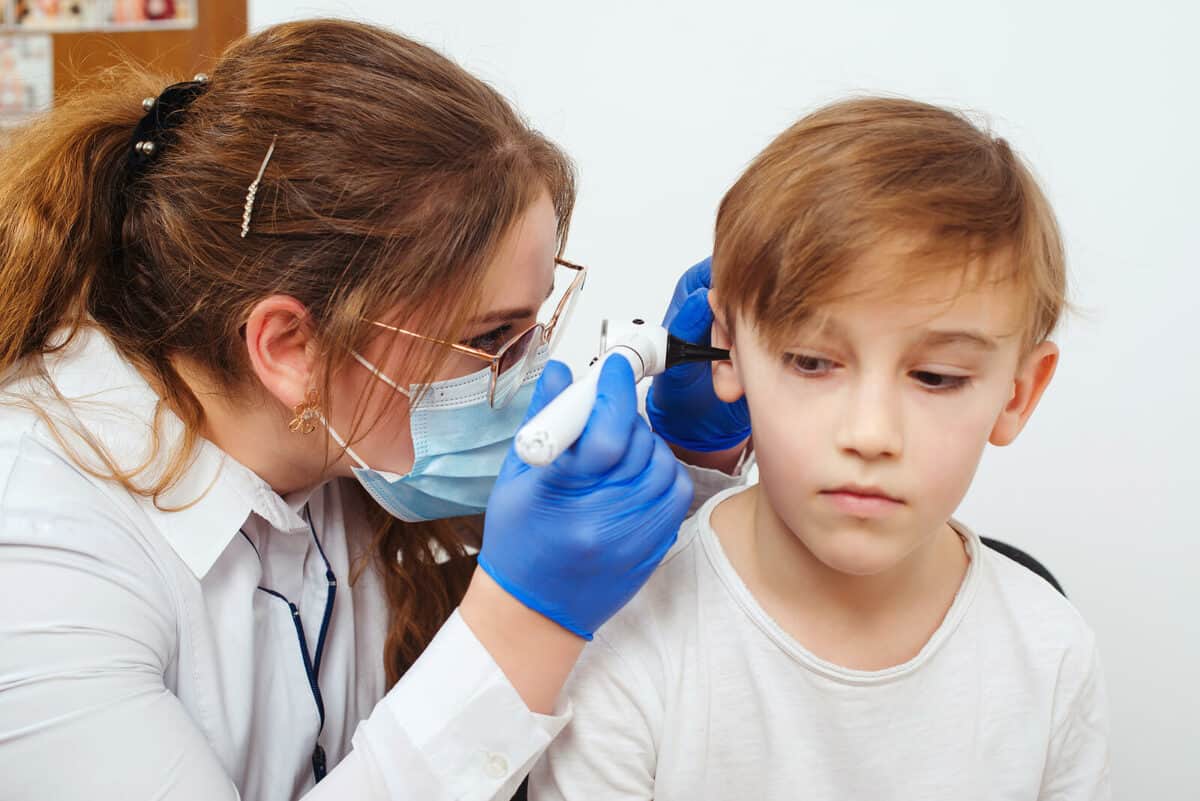When it comes to teenage life, where earphones are almost as essential as a smartphone, hearing loss is an issue that often goes unnoticed. Parents, educators, and teens themselves must be aware of the potential risks and take steps to protect their hearing. It’s important to recognize the signs of hearing loss in teens and seek treatment as soon as possible.
The Unseen Challenge: Teenage Hearing Loss
As your teenager navigates the exciting and dynamic phase of adolescence, their hearing health might not be at the forefront of your mind. However, the prevalence of hearing loss in teens is a growing concern that deserves our attention. The World Health Organization estimates that nearly 1.1 billion young people worldwide are at risk of hearing loss due to exposure to loud recreational activities and personal audio devices. If you have teenagers at home, learning more about hearing loss in teens can help you prevent hearing loss.
The Causes of Teenage Hearing Loss
Understanding the causes of hearing loss is the first step in addressing this issue. While genetics can play a role, the majority of hearing loss in teens is preventable. Prolonged exposure to loud noise is the main culprit. This can be through the constant use of earphones, attending loud concerts, or engaging in noisy recreational activities.
Moreover, certain environmental factors, such as exposure to loud machinery or untreated ear infections, can also impact a teenager’s auditory health. It’s essential to recognize these potential risks and take proactive steps to safeguard their hearing.
Signs and Symptoms
Identifying hearing loss in teens can be challenging as they may not always express their concerns or recognize the signs themselves. Some common indicators of hearing loss include increased television or music volume, difficulty understanding conversations, and complaints of ringing or buzzing sounds in the ears. If you notice any of these signs in your teenager, it’s a good idea to consult with a healthcare professional for a thorough hearing assessment.
The Importance of Early Detection
Early detection is key in addressing hearing loss effectively. Regular hearing check-ups should be a part of every teenager’s healthcare routine. Timely identification allows for prompt intervention and minimizes the potential impact on their academic, social, and emotional well-being.
Creating Awareness in Schools
Educators play a pivotal role in raising awareness about hearing health. Schools can implement programs that educate students on the risks of prolonged exposure to loud noises and promote healthy hearing habits. Incorporating these lessons into the curriculum helps empower teens to make informed choices about their auditory well-being.
Encouraging Open Communication
Fostering open communication between parents and teenagers is essential in addressing hearing loss. Establishing an environment where teens feel comfortable discussing their concerns about their hearing health is crucial. Encourage them to share any difficulties they may be experiencing and reassure them that seeking help is a positive step towards maintaining overall well-being.
Practical Tips for Protecting Teenage Hearing
Here are some ways your teen can protect their hearing:
- Volume Control: Remind your teenager to keep the volume of personal audio devices at a moderate level. Most smartphones and music players have built-in volume controls that can limit the maximum sound output.
- Take Listening Breaks: Encourage breaks during prolonged use of headphones or earphones. This allows the ears to rest and reduces the risk of overexposure to loud sounds.
- Protective Gear: If your teenager participates in loud recreational activities, such as concerts or sporting events, provide them with ear protection. Custom earplugs or earmuffs can effectively reduce the impact of loud noises.
- Regular Check-ups: Schedule regular hearing check-ups with a qualified audiologist. Early detection of any issues allows for timely intervention and prevents potential long-term damage.
Empowering Teens for a Healthy Future
Addressing hearing loss in teens requires a collaborative effort from parents, educators, and the teens themselves. By creating awareness, fostering open communication, and implementing practical strategies for hearing protection, we can empower teenagers to prioritize their hearing health and cultivate habits that will benefit them well into adulthood.
We’re here to help. Visit us today for a hearing test, and let’s promote a culture of understanding and proactive care that ensures our teens enjoy a lifetime of healthy hearing.

